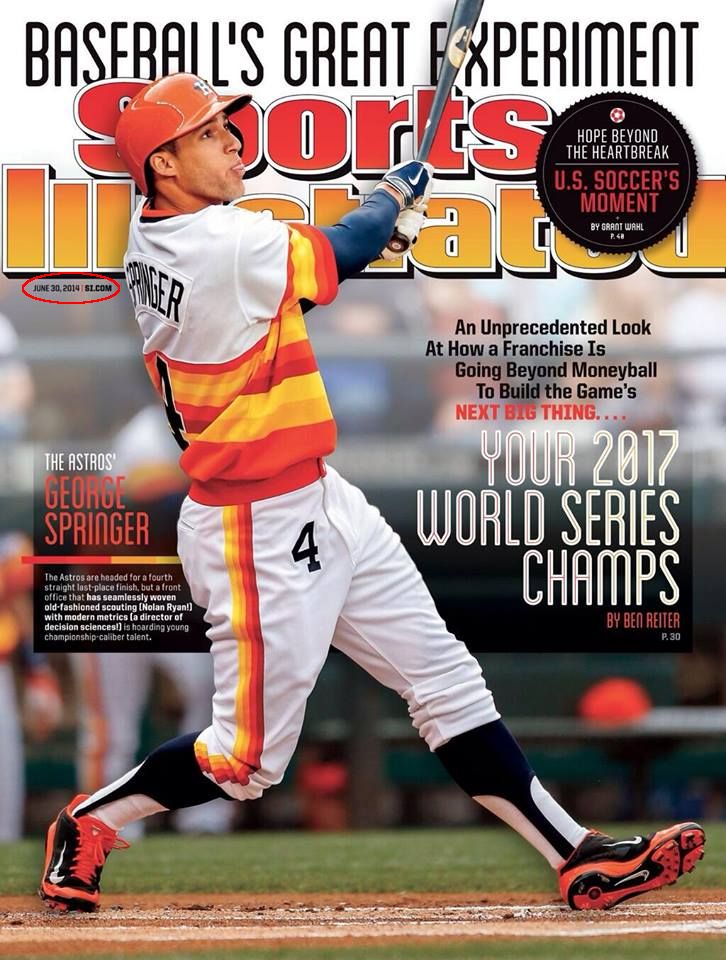Congratulations Astros!
By now you know the Houston Astros won the World Series. I didn't have a big rooting interest in this one. My favorite teams are, the Orioles, the Cubs, and whoever's playing the Yankees that day. The Dodgers knocked off the Cubs, the Astros did the honors for the Yankees, and the Orioles were really not in this year's post-season conversation. So I'm OK with how the Series turned out.
But the funny thing now is how everyone is swooning over a Sports Illustrated cover from June 30, 2014. Yes, 40 months ago:

Many people appear to be unaware that sports-writing is basically a business of ignoring yesterday's predictions that were proven wrong today while making more predictions for tomorrow.
Venturing over three years into the future with your predictions, especially as visibly as a cover story in SI, just gives other sports-writers ammunition to make fun of you. Check out the sneering tone of the USA Today story at that time.
Obviously the magazine isn’t actually declaring the Astros the 2017 World Series champs, just making an audacious point about a perennially bottom-dwelling club that is, by almost all accounts, moving in the right direction. . . .And the heroics of coverboy George Springer aside, most of the Astros’ ballyhooed prospects remain only prospects. Of the players currently on their roster that are under team control through 2017, only Jose Altuve has really established himself as a good Major League player. Springer has been great for his 225 at-bats, and starters Dallas Keuchel, Jarred Cosart and Collin McHugh have all had success this season.
Even if all those guys maintain their success, that’s five pieces of a 25-man roster.
So here's the thing about predictions: they are mostly BS. People tend to forget the ones that were wrong and focus on the ones that turned out right. A comparison of most predictive techniques with coin-flipping would make coin-flipping look like a map of the future. Here's a fun exercise: track a week's worth of predictions from your favorite sports media and compare them to random chance. You'll never read a sports page the same way again.

